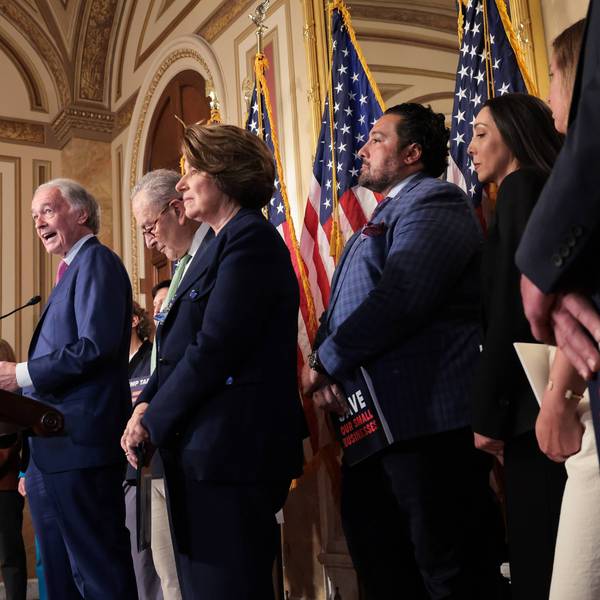Prompting calls for increased vigilance and demands that businesses be "open to all," the U.S. Supreme Court on Monday ruled in favor of a Colorado baker who had refused in 2012 to make a wedding cake for a same-sex couple.
The ruling (pdf) was 7-2, with Justices Ruth Bader Ginsburg and Sonia Sotomayor dissenting.
The ACLU, which argued the case on behalf of the couple, Dave Mullins and Charlie Craig, notes in a series of tweets that the court "did NOT rule that the Constitution gives a right to discriminate."
Rather, the court found that the Colorado Civil Rights Commission had acted improperly when it said that the owner of the Masterpiece Cakeshop in suburban Denver could not refuse to make a same-sex wedding cake because the body "showed elements of a clear and impermissible hostility toward the sincere religious beliefs motivating his objection," and therefore did not act with "the requisite religious neutrality."
In his majority opinion, Justice Anthony Kennedy wrote that "the outcome of cases like this in other circumstances must await further elaboration in the courts, all in the context of recognizing that these disputes must be resolved with tolerance, without undue disrespect to sincere religious beliefs, and without subjecting gay persons to indignities when they seek goods and services in an open market."
In other words, said Louise Melling, deputy legal director of the ACLU, the high court overturned the Colorado Court of Appeals' 2015 ruling "based on concerns unique to the case but reaffirmed its longstanding rule that states can prevent the harms of discrimination in the marketplace, including against LGBT people."
Chad Griffin, president of Human Rights Campaign, similarly noted: "This is a narrow ruling by #SCOTUS against the Colorado Commission, but Supreme Court opinion also acknowledges that LGBTQ people have equal right to be free from the indignity of discrimination. This doesn't change civil rights laws."
Lambda Legal, however, warned that the ruling could invite "discrimination and further efforts to justify withholding service from #LGBTQ people."
The advocacy group's CEO, Rachel B. Tiven, called it "a deeply disappointing day in American jurisprudence."
"Today's decision should have been a firm, direct affirmance of longstanding equality law. Instead, the Supreme Court has become an accomplice in the right's strategy to hollow out one of its finest achievements, the right to equal marriage, and create what Justice Ginsberg memorably termed 'skim milk marriages,'" she added.
The case was Masterpiece Cakeshop, Ltd. v. Colorado Civil Rights Commission.




